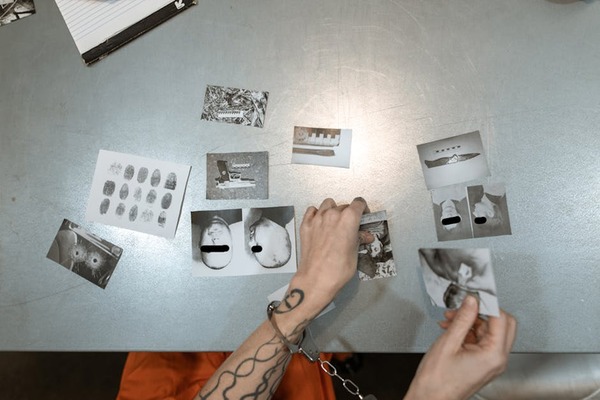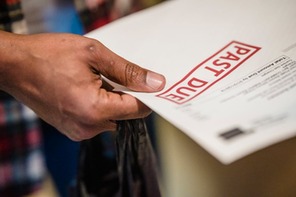- Attorney-Lawyer.esq
- Blog
- The Criminal Justice Process: What to Expect
The Criminal Justice Process: What to Expect

===
The criminal justice process can be a daunting and complex system to navigate for individuals who find themselves involved in it. Understanding what to expect at each stage of the process can help alleviate some of the anxiety and uncertainty that comes with facing criminal charges. From the initial arrest to post-conviction options, there are specific procedures and protocols that must be followed. In this article, we will break down the various components of the criminal justice process and provide insight into what individuals can expect as they move through the system.
## Understanding the Criminal Justice System
The criminal justice system is a network of institutions and procedures designed to uphold the law, enforce criminal penalties, and protect the rights of individuals accused of crimes. It consists of law enforcement agencies, prosecutors, defense attorneys, judges, and correctional facilities. The system operates on the principle that individuals are innocent until proven guilty and guarantees due process rights to all individuals involved in criminal cases.
## Initial Arrest and Booking Procedures
When an individual is arrested, they are taken into custody by law enforcement officers and brought to a police station for booking. During the booking process, the individual's personal information is recorded, fingerprints are taken, and a mugshot is captured. The individual may also be searched, and any personal belongings confiscated. Following booking, the individual may be held in custody pending a bail hearing or released on their own recognizance.
## The Role of Prosecutors in the Process
Prosecutors are responsible for representing the government in criminal cases and presenting evidence against the accused in court. They have the authority to decide whether to file charges, negotiate plea deals, and prosecute cases at trial. Prosecutors work closely with law enforcement agencies to gather evidence, interview witnesses, and build a case against the accused. Their primary goal is to seek justice and hold individuals accountable for their actions.
## Pretrial Hearings and Bail Determination
After an individual is arrested and charged with a crime, they will appear in court for a pretrial hearing. During this hearing, the judge will determine whether there is enough evidence to proceed with the case and set bail if necessary. Bail is a monetary amount set by the court to ensure that the accused will appear for future court dates. If the accused cannot afford bail, they may be held in custody until their trial.
## The Importance of Legal Representation
One of the most critical aspects of the criminal justice process is having competent legal representation. Defense attorneys play a crucial role in advocating for the rights of the accused, challenging evidence presented by the prosecution, and negotiating plea deals on behalf of their clients. It is essential for individuals facing criminal charges to seek the assistance of an experienced attorney who can provide guidance and support throughout the legal proceedings.
## Plea Bargaining and Negotiations
Plea bargaining is a common practice in the criminal justice system where the accused agrees to plead guilty to a lesser charge in exchange for a reduced sentence. Prosecutors and defense attorneys engage in negotiations to reach a plea agreement that is mutually beneficial for both parties. Plea bargaining can help expedite the legal process, reduce the burden on the court system, and provide a resolution to the case without going to trial.
## Trial Procedures and Courtroom Etiquette
If a plea agreement cannot be reached, the case will proceed to trial where the prosecution and defense will present evidence, call witnesses, and make arguments before a judge or jury. It is essential for individuals involved in a trial to understand courtroom etiquette, dress appropriately, and behave respectfully. The trial process can be lengthy and emotionally taxing, but it is a critical step in determining the guilt or innocence of the accused.
## Sentencing and Post-Conviction Options
After a verdict is reached in a criminal trial, the judge will impose a sentence on the convicted individual. Sentences can range from fines and probation to incarceration in a correctional facility. In some cases, individuals may be eligible for alternative sentencing options such as community service or drug rehabilitation programs. Additionally, individuals have the right to appeal their conviction or sentence if they believe there were errors in the legal process.
## Appeals Process and Legal Remedies
If an individual wishes to challenge a conviction or sentence, they can file an appeal with a higher court. The appeals process allows individuals to present legal arguments and evidence to demonstrate that a mistake was made during the trial or sentencing phase. Appellate courts have the authority to overturn convictions, reduce sentences, or order a new trial. It is essential for individuals considering an appeal to consult with an attorney who specializes in appellate law.
## Reentry into Society After Incarceration
For individuals who have served time in prison, reentry into society can be a challenging and overwhelming process. Many individuals face barriers to employment, housing, and social services upon release from incarceration. It is crucial for individuals to access support services, such as job training programs, counseling, and transitional housing, to help them successfully reintegrate into their communities. By providing resources and assistance to individuals reentering society, we can reduce recidivism rates and promote rehabilitation.
===
Navigating the criminal justice process can be a complex and intimidating experience for individuals facing criminal charges. By understanding the various components of the system, from initial arrest to post-conviction options, individuals can better prepare themselves for what to expect at each stage. Seeking the guidance of experienced legal professionals, advocating for one's rights, and accessing support services upon reentry into society are essential steps in successfully navigating the criminal justice process. By upholding the principles of justice, due process, and rehabilitation, we can work towards a fair and equitable criminal justice system for all individuals involved.




